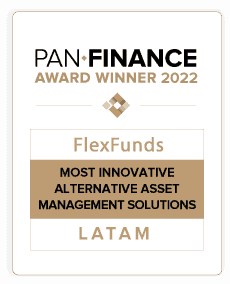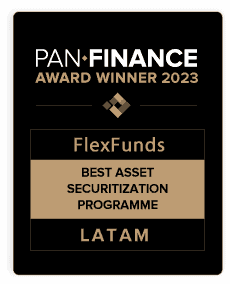Private investment funds are used as a vehicle to finance various types of projects and represent a useful solution to raising private capital. Additionally, they are considered an alternative to traditional investment for those seeking profitability and diversification.
This article describes the operation, characteristics, advantages, and structure of this financial product.
What are private investment funds?
Private equity funds are vehicles set up to raise capital from multiple investors. However, what defines this type of funds is that their shares are not open to the public; they are privately placed, closed-end companies manage them, and their issuance is limited. Each country regulates the maximum number of unitholders they can have.
If a private investment fund exceeds the maximum allowed number of contributors, it would be subject to the regulations applicable to ordinary investment funds, where there is a public offering of the shares.
Due to their private nature, they have greater flexibility to incorporate various types of assets into their portfolio. Therefore, they are related to alternative investment projects, innovative initiatives, and emerging companies.
Their activity plays an important role in the financial ecosystem. In fact, the Spanish Official Credit Institute (ICO) promoted 2013 the Fond-ICO Global: a “fund of private venture capital funds” endowed with € 4.5 billion for developing these products because they are a source of capital for SMEs.
In short, private equity funds are vehicles that provide access to investments parallel to traditional assets with return potential.
How do private investment funds work?
The operation of a private equity fund is similar to that of an ordinary fund, although it has several distinctive features. In principle, we could highlight the differences in the investment philosophy: private funds tend toward Private Equity, Venture Capital, or Real Estate. They are a helpful formula for implementing investments in the real estate sector.
In this sense, they are a good formula for making investments in the real estate sector. Moreover, within this universe, the category of real estate private equity funds is one of the most prominent.
Investment in real estate assets requires large amounts of capital for its acquisition, inducing the use of leverage through mortgage loans.
Thus, real estate private equity funds are based on economies of scale and facilitate the achievement of financial objectives. They help achieve higher figures in raising private capital to compose a diversified portfolio of real estate of multiple types (hotels, parking, offices, shopping centers, buildings) and in different geographical areas.
In addition, as in any investment fund, the portfolio is managed by a professional. This person is responsible for the effective execution of strategy and decision-making, subject to the applicable legislation, depending on the country. The manager’s work is remunerated through a commission, while the fund’s participants distribute the profits.
However, unlike conventional funds, these vehicles usually have a fixed term, generally ten years. Their units are not listed and do not have a daily net asset value. There are no redemptions against the fund’s assets, and the transfer of units is usually restricted.
What are the advantages of private investment funds?
In addition to providing greater diversification, professional management, and ease of access to investments, one of the main factors determining which vehicle to choose is taxation.
In this aspect, the funds have advantages because their yields become part of the fund’s equity if not distributed periodically. Thus, the participant does not have to declare this income, and there is no tax impact.
On the other hand, institutionalization provides greater solidity and credibility to the investment strategy, increasing the attraction of contributors. Additionally, the advantages of these products also reach the companies, projects, or assets in which they are invested. By obtaining an injection of capital, they gain competitive scale and increase their potential to generate profits.
In short, private funds are a crowdfunding formula with advantages for all parties involved; it is a win-win.
How to set up a private equity fund?
We have seen how private equity funds an alternative investment vehicle to conventional assets along these lines are. Moreover, it is interesting for an investor to diversify his global portfolio with assets uncorrelated to the financial markets.
Furthermore, private equity is constituted in various ways. One of the most used in recent times is through the securitization of assets under the structure of an ETP (Exchange Traded Product).
By adding greater ease of trading, ETPs remove many bureaucratic barriers, with the possibility of reaching diverse financial sources, and the result is a greater capacity to raise private capital. In addition, they can take as underlying a wide selection of assets, giving rise to specific and customized solutions.
We can set up a dedicated investment vehicle issuer quickly and efficiently through our Flex Private Program. Please get in touch with our team, and we will be happy to provide you with all the information you need.
Due to their advantages, ETPs have become a suitable alternative for developing the market for private equity funds, real estate private equity funds, and hedge funds.







